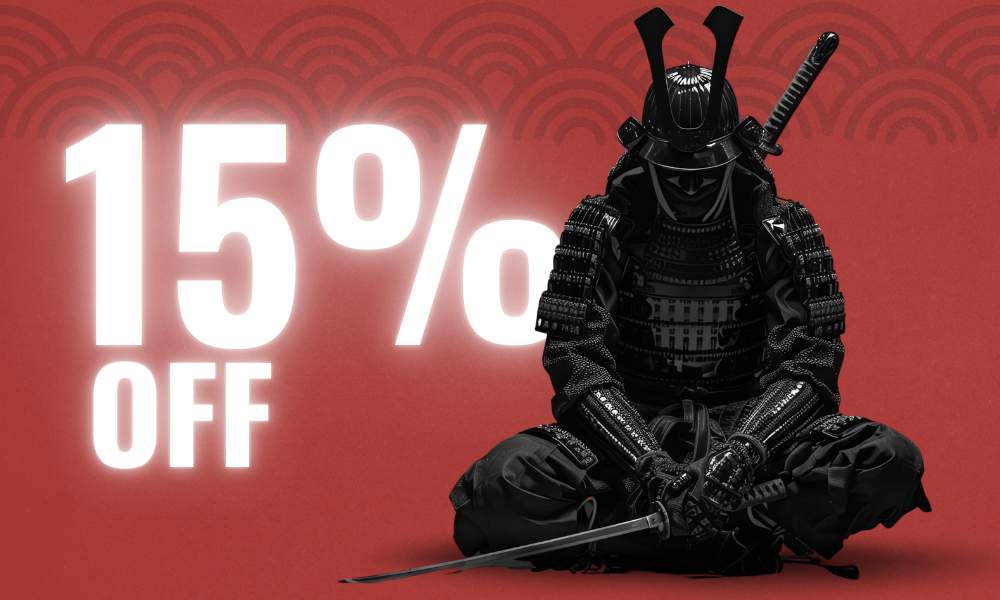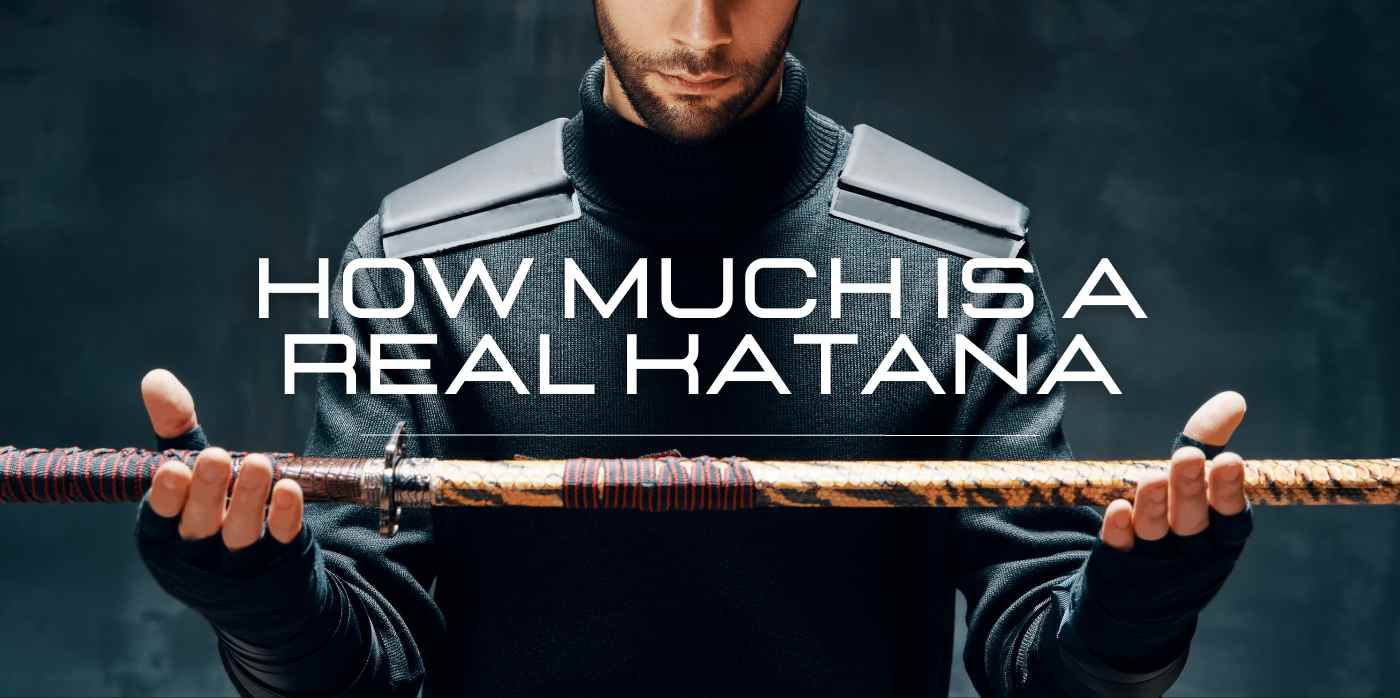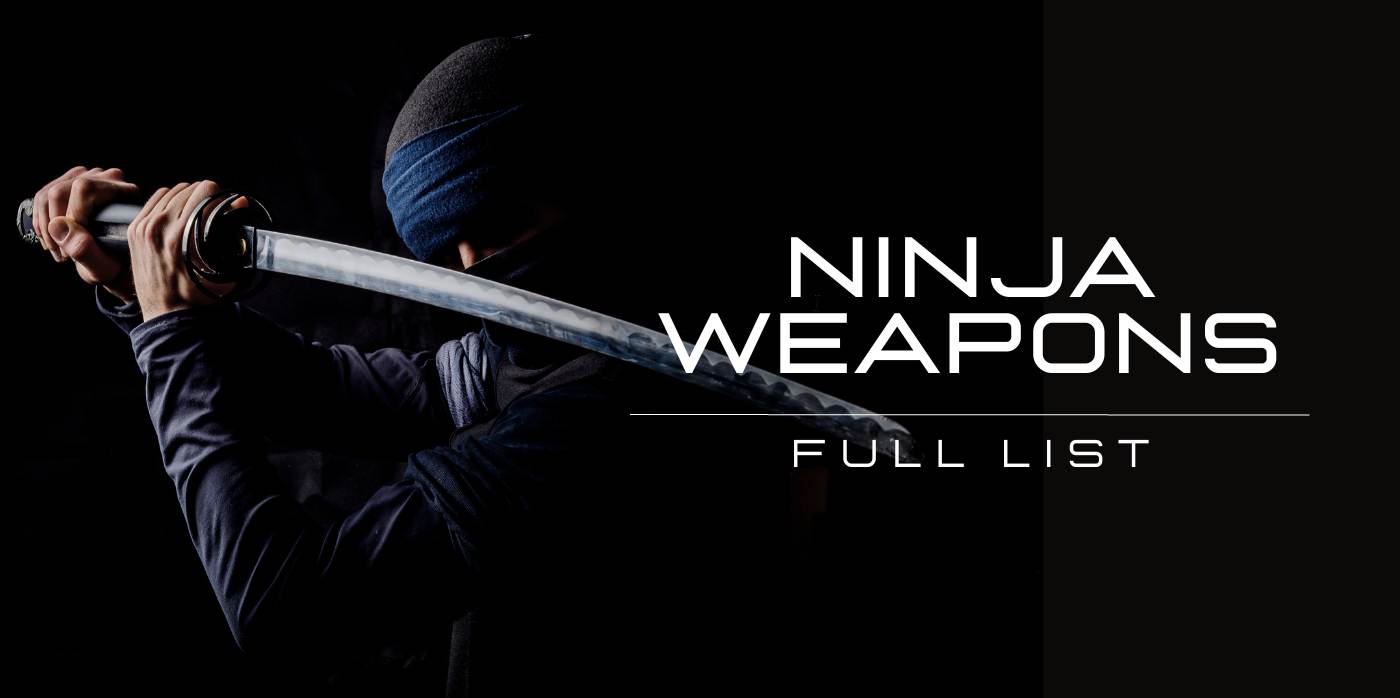When it comes to swords, few can command the prestige and reverence of a real katana. This legendary Japanese sword, synonymous with the samurai, is renowned for its unparalleled craftsmanship and stunning aesthetics. But how much does a real katana cost? As with many collectibles, the answer can be as varied as the blades themselves. From affordable replicas to priceless antiques, the katana market is vast and diverse, and navigating it can be a challenge for newcomers. In this post, we examine the variables that affect katana prices and offer advice on how to pick the best sword for your needs and budget.
1. The Factors that Influence the Price of a Katana
The cost of a katana is not a fixed notion; it varies based on several elements. Craftsmanship, material quality, historicity, rarity, and the swordsmith's reputation significantly impact the katana's price. For example, a handmade katana crafted by a well-known swordsmith using traditional tamahagane steel will command a higher price than a mass-produced blade.
1.1 Age and Historical Significance
Antique Katanas that date back to the feudal era of Japan are often priced higher due to their historical significance. Such swords, especially those linked to renowned Samurai or crafted by famous swordsmiths, can command prices into the thousands, if not millions, of dollars.
1.2 Swordsmith and Craftsmanship
The reputation and skill of the swordsmith significantly affect the Katana's price. Renowned swordsmiths who have attained the title of 'Mukansa' (a title implying that their works are above standard) often command higher prices for their Katanas. The craftsmanship involved, the time it takes, and the unique techniques used are all encapsulated in the price tag.
1.3 Materials and Quality
The type and quality of the materials used, both for the blade and the sword fittings (Tsuba, Tsuka, Saya), significantly impact the cost. Blades made from Tamahagane (traditional Japanese steel) and swords with fittings crafted from high-quality materials like silver, gold, or premium grade rayskin, tend to be more expensive.
1.4 Condition and Maintenance
The condition of a Katana also contributes to its price. A well-maintained sword, free from rust, chips, or cracks, is naturally more valuable. You can easily clean your katana in a few steps! Moreover, if the sword has been polished and preserved using traditional techniques, it's likely to fetch a higher price.
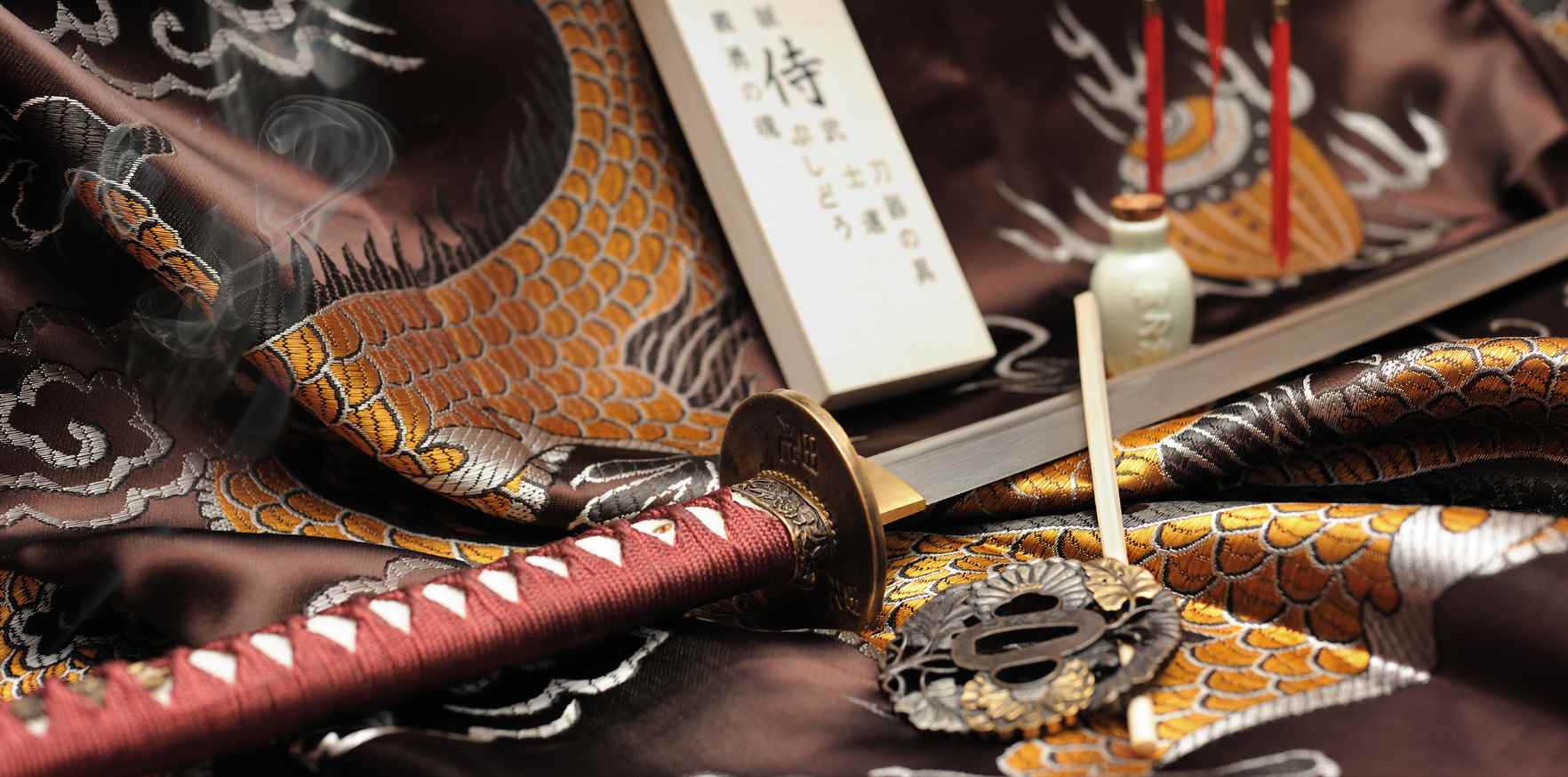
2. The Price Range of Real Katanas: From Affordable to Luxury
Katanas span a broad spectrum of prices, making them accessible to various budgets. Affordable katanas or budget katanas are typically machine-made and cost under $100. It can be a good way get into the world of Japanese swords without breaking the bank. Mid-range katanas, which balance quality and affordability, can cost anywhere between $200 to $4,000. It is a great compromise between price and quality to get a real hand-made katana. Finally, "luxury katanas", including custom-made pieces and antiques, start around $4,000 and can extend to six or even seven figures for rare, historically significant blades, such as the most expensive katana.
2.1 Handmade Katanas
Prices for a handcrafted Katana manufactured by an expert swordsmith, but not a "Mukansa," range from $200 to more than $4,000. Different levels of workmanship, materials, and design intricacy account for the vast price range.
2.2 Antique Katanas
Antique Katanas, depending on their historical significance, can cost between $4,000 and $10,000 for less notable pieces. Legendary katanas linked to famous Samurai or crafted by well-known swordsmiths can command prices exceeding $30,000, and in some rare cases, even reaching millions.
2.3 Custom-Made Katanas
For those looking to own a personalized piece, custom-made Katanas are an option. Depending on the specific requests and materials used, a custom-made Katana can cost anywhere from $3,000 to $20,000 and beyond.
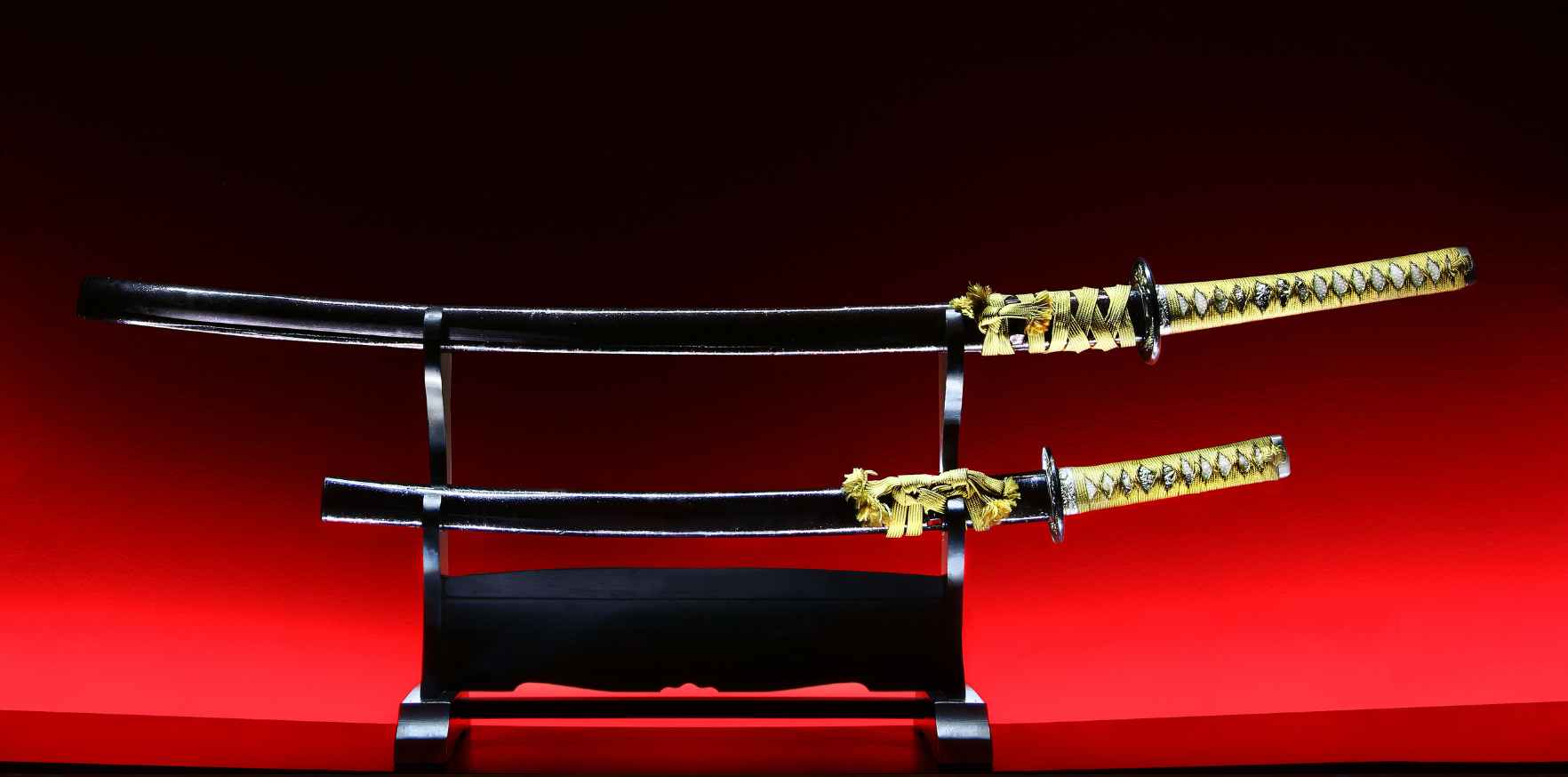
3. Where and How to Buy a Real Katana
There are several options if you want to buy a katana, from internet shops and physical stores to antique dealers and auctions. You might want to think about our hand-forged Japanese sword if you're wanting to purchase your own katana.
4. Things to Keep in Mind When Buying a Real Katana
4.1 Authenticity
Ensure that the Katana you're purchasing is authentic. When buying antique Katanas, look for a certification of authenticity.
4.2 Inspection
If you are buying a second-hand katana, inspect the sword carefully. Check for any damages, rust, or signs of poor maintenance. Inquire about the sword's history, its previous owners, and how it's been preserved.
4.3 Legal Considerations
Keep in mind that different national regulations apply to the possession, acquisition, and transportation of swords. Make sure you are familiar with and following local laws.
5. Budget vs. Quality: Are Cheaper Katanas Worth it
While affordable katanas can be an attractive option, they often involve a trade-off with quality. They can serve as decorative pieces or be used for light cutting exercises but may not be suitable for martial arts practice or serious collecting. Investing in a higher-quality blade is recommended for long-term use and appreciation.
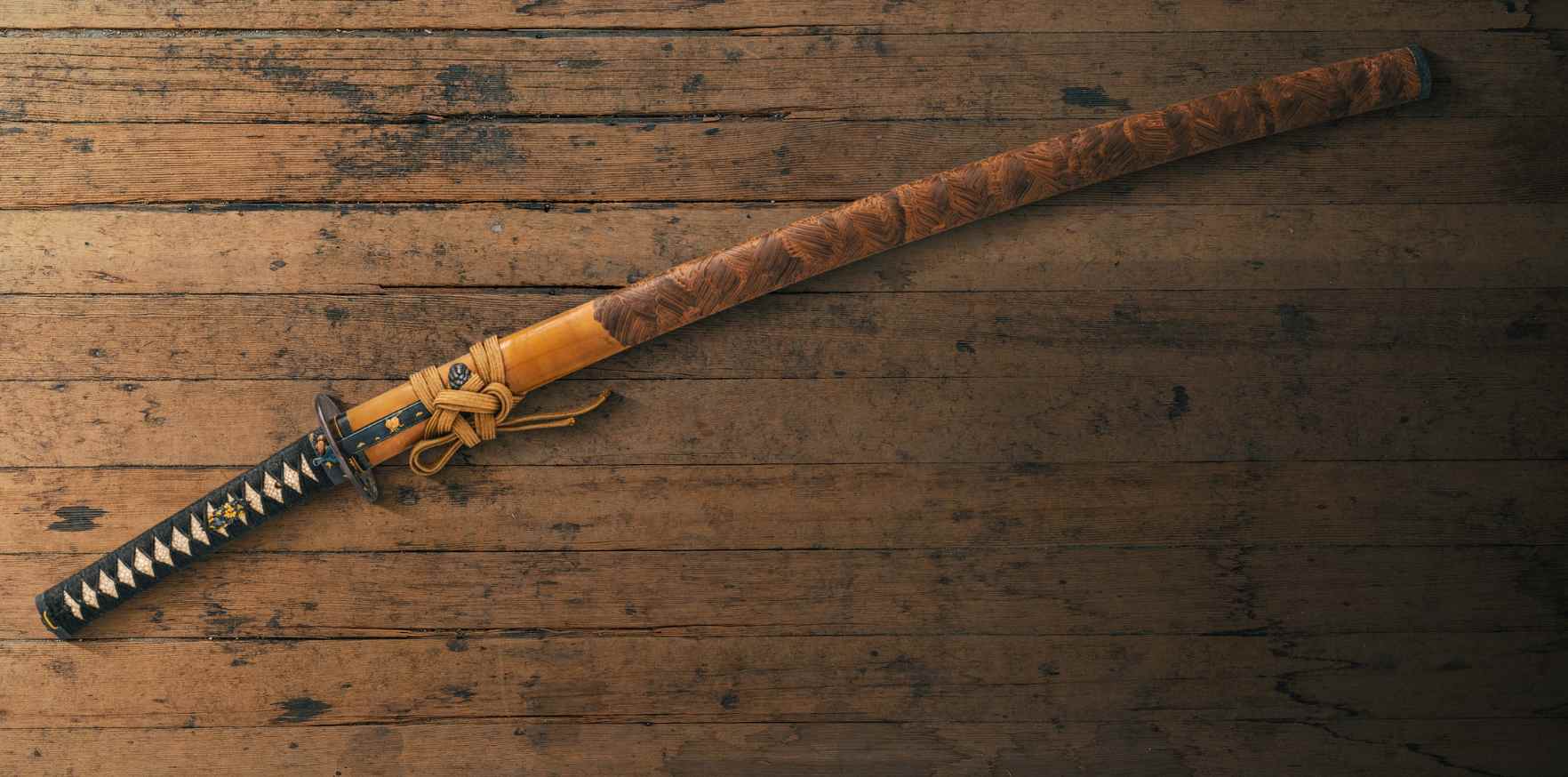
6. Resale Value of a Katana
The resale value of a katana depends on various factors like authenticity, condition, rarity, and current market trends. High-quality, well-maintained katanas, especially those from respected swordsmiths or with historical significance, generally hold their value and can even appreciate over time, making them a worthy sword investment.
Conclusion
The intricate interplay of artistry, authenticity, materials, history, and market factors determines the cost of a true katana. The ultimate worth of a katana resides in its embodiment of Japanese heritage, expert artistry, and samurai spirit rather than in its price, which can range from a few hundred to several million dollars. Understanding these elements is essential for navigating the katana market and finding a blade that not only fits your budget but also reflects your admiration of this classic samurai sword, whether you're a novice in the world of Japanese swords or an experienced collector.


